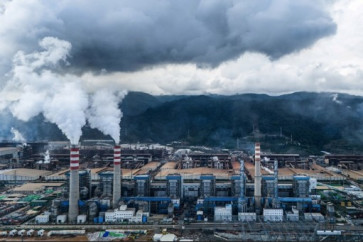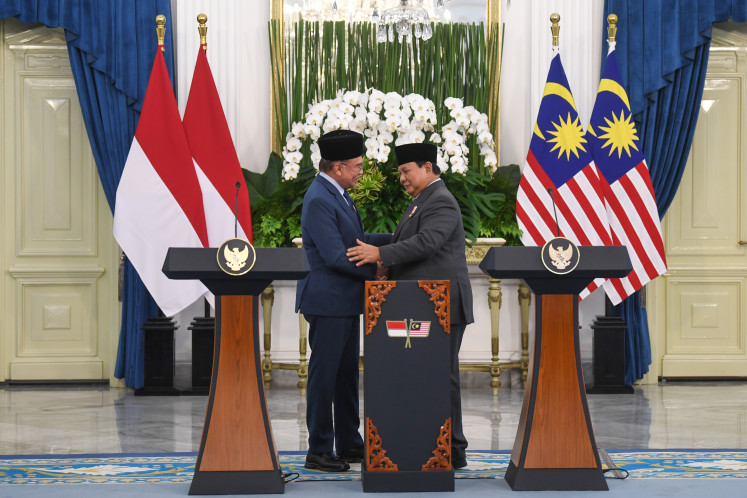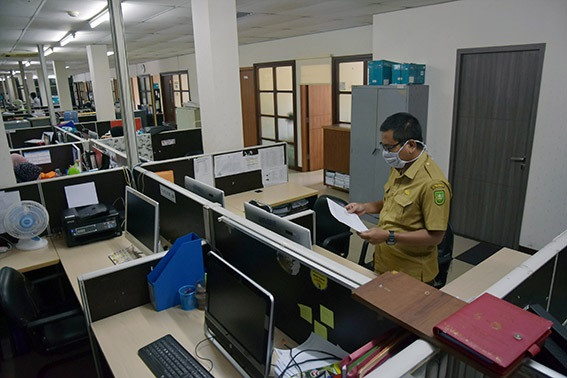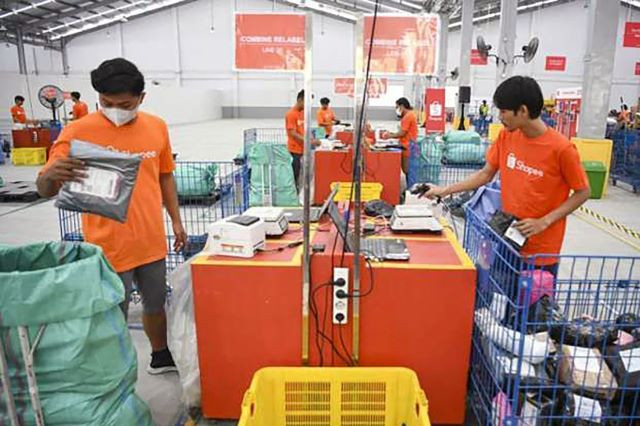Popular Reads
Top Results
Can't find what you're looking for?
View all search resultsPopular Reads
Top Results
Can't find what you're looking for?
View all search resultsInvestment key to sustainable GDP growth
Indonesia will need to boost investment to ensure sustainable growth as household spending, currently the main driver of economic growth, is not expected to see any significant growth in the future, a senior economist has said
Change text size
Gift Premium Articles
to Anyone

I
ndonesia will need to boost investment to ensure sustainable growth as household spending, currently the main driver of economic growth, is not expected to see any significant growth in the future, a senior economist has said.
"Going forward, the challenge is to maintain economic growth and the key is investment," Standard Chartered economist Aldian Taloputra said at the bank's annual Global Research Briefing and Investor Forum in Jakarta on Wednesday.
"We need an expansion and a new source of economic growth that can add more value,” he said.
The government is drafting an omnibus bill on job creation to amend more than 1,000 investment-unfriendly articles in more than 70 existing laws as part of its efforts to attract more investment. The amendments are expected to make obtaining business permits easier, lower the corporate tax rate and improve the job market, among other things.
"I think the omnibus law will remove some of the hurdles facing investors," Aldian said. "When we talked to investors, they said land acquisition was very difficult ."
Indonesia’s economic growth rate in the third quarter of 2019 was recorded at 5.02, the lowest level in more than two years. Investment growth slumped to 4.21 percent year-on-year (yoy) in the third quarter, considerably lower than the 6.96 percent booked over the same period in 2018.
"Why did investment [growth] fall? First, some of the government's policy packages were not effective and second, imports of raw materials declined, which indicated that the manufacturing sector was not expanding," Institute for Development of Economics and Finance (Indef) researcher Bhima Yudhistira told The Jakarta Post on Wednesday.
Imports of raw materials fell 11.07 percent in 2019 yoy, Statistics Indonesia (BPS) data show.
Bhima added that investment from state-owned enterprises in infrastructure projects made a greater contribution to economic growth than foreign direct investment last year .
According to the Investment Coordinating Board (BKPM), total investment increased to Rp 800 trillion (US$58.63 billion) last year from Rp 721 trillion in 2018. It also exceeded the government's 2019 target of Rp 790 trillion.
However, in the third quarter of 2019, more than half of the 5.02 percent economic growth was driven by household spending, followed by net exports and investment.
To increase investment, the government needs to further develop the digital economy and tourism in regions outside Java to reduce reliance on commodities such as coal and palm oil, Bhima said.
INDEF projected that this year Indonesia's economy would grow 4.8 percent, lower than the government's 5.3 percent target. The World Bank and Standard Chartered have a more optimistic outlook, each expecting the economy to grow 5.1 percent this year.
"For the long term, I think the prospects [of Indonesia's economy] still look very good," said Standard Chartered chief executive officer Andrew Chia. (dfr)









